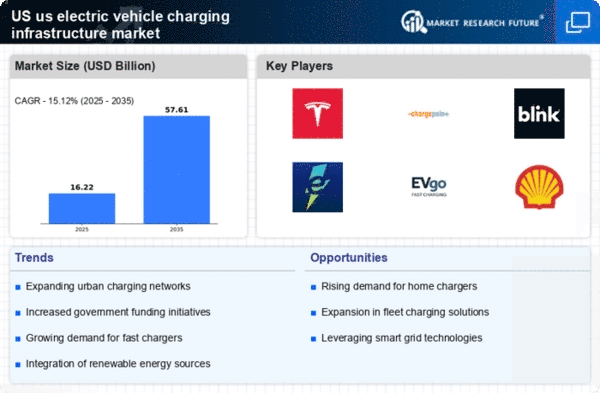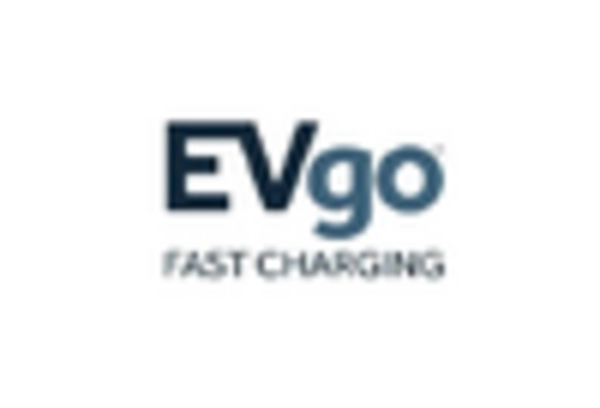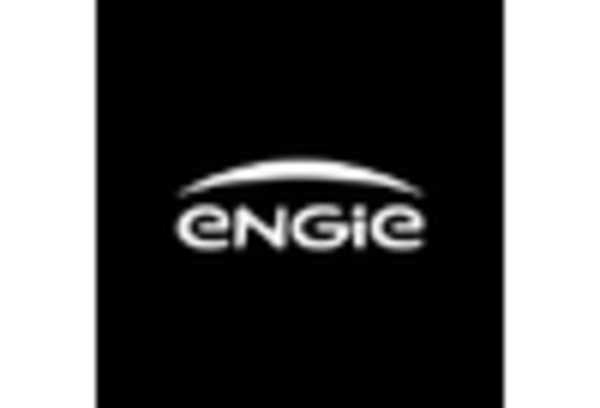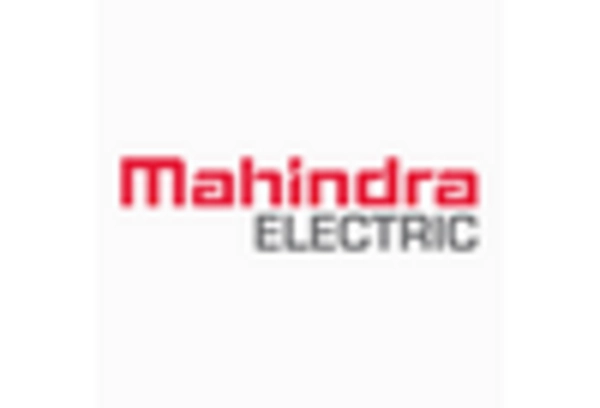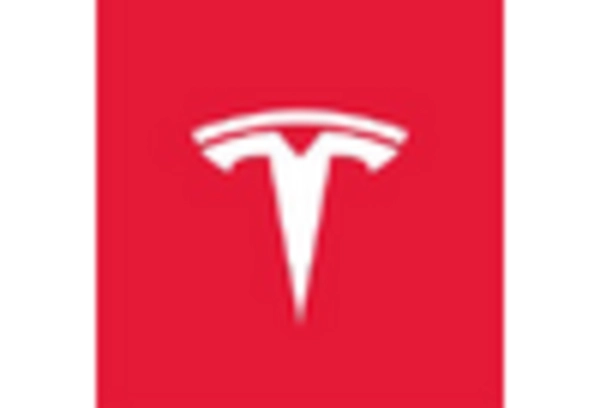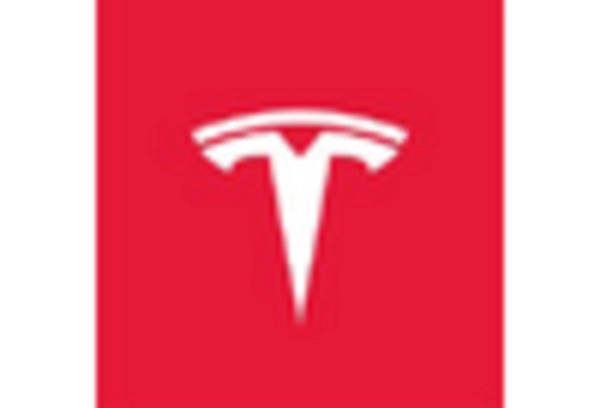Government Incentives and Policies
The US Electric Vehicle Ev Charging Infrastructure Market is significantly influenced by government incentives and policies aimed at promoting electric vehicle adoption. Federal and state governments have introduced various tax credits, rebates, and grants to encourage the installation of EV charging stations. For instance, the federal government offers a tax credit of up to 30% for the installation of EV charging equipment. Additionally, states like California have implemented their own programs, providing funding for public charging infrastructure. These initiatives not only reduce the financial burden on consumers and businesses but also stimulate market growth by increasing the number of charging stations available, thereby enhancing the overall EV ecosystem.
Corporate Sustainability Initiatives
Many corporations in the US are increasingly adopting sustainability initiatives, which include the installation of EV charging stations as part of their corporate social responsibility strategies. The US Electric Vehicle Ev Charging Infrastructure Market is benefiting from this trend, as companies recognize the importance of supporting electric vehicle adoption. For example, major corporations such as Amazon and Walmart have committed to installing thousands of charging stations at their facilities. This not only enhances their brand image but also contributes to the reduction of carbon emissions. As more businesses invest in charging infrastructure, the overall market is likely to experience accelerated growth, driven by corporate commitments to sustainability.
Urbanization and Infrastructure Development
The ongoing trend of urbanization in the United States is contributing to the growth of the US Electric Vehicle Ev Charging Infrastructure Market. As urban areas expand, the demand for efficient transportation solutions increases, leading to a higher adoption of electric vehicles. Cities are recognizing the need to develop robust charging infrastructure to accommodate this shift. For example, metropolitan areas are implementing plans to install charging stations in public spaces, parking lots, and along major roadways. This proactive approach not only supports the growing number of electric vehicles but also aligns with urban sustainability goals. As urban infrastructure evolves, the market for EV charging stations is expected to flourish.
Rising Consumer Demand for Electric Vehicles
The growing consumer demand for electric vehicles is a pivotal driver for the US Electric Vehicle Ev Charging Infrastructure Market. As more consumers opt for electric vehicles, the need for accessible and reliable charging infrastructure becomes paramount. According to recent data, electric vehicle sales in the US have surged, with over 1.5 million electric vehicles sold in 2025 alone. This trend indicates a shift in consumer preferences towards sustainable transportation options. Consequently, the demand for charging stations is expected to rise, prompting investments from both public and private sectors to expand the charging network, thereby supporting the overall growth of the EV market.
Technological Innovations in Charging Solutions
Technological advancements in charging solutions are playing a crucial role in shaping the US Electric Vehicle Ev Charging Infrastructure Market. Innovations such as fast charging technology and smart charging systems are enhancing the efficiency and convenience of EV charging. For instance, the development of ultra-fast chargers can significantly reduce charging times, making electric vehicles more appealing to consumers. Furthermore, smart charging solutions that integrate with renewable energy sources are becoming increasingly popular, allowing users to charge their vehicles during off-peak hours or when renewable energy is abundant. These technological improvements are likely to attract more users to electric vehicles, thereby driving the demand for charging infrastructure.


